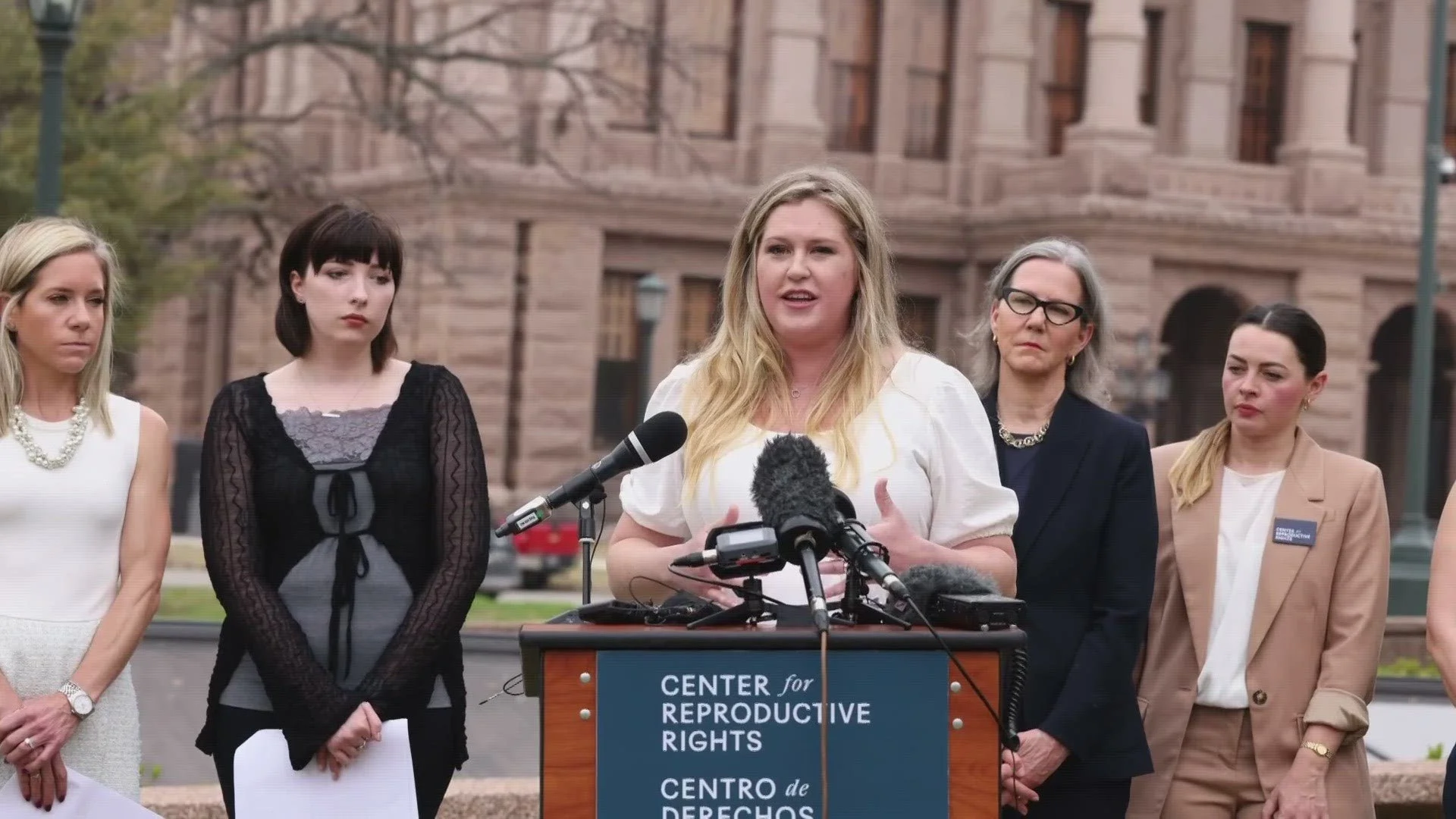Five Women, Two Doctors Sue Texas SB8 Law, Seeking 'Medical Emergency' Definition
/Lauren Miller of Dallas at the lectern is part of the lawsuit. Originally Pregnant with Twins, she left Texas for Colorado after Learning that one of her fetuses was critically ill and would not survive. A Doctor took one look at Miller’s condition and advised her to leave Texas immediately. Both Lauren Miller’s health and that of her second fetus were in severe danger without an abortion of the nonviable fetus.
Five women who were denied abortions in Texas have filed a lawsuit against the state. Two doctors are also plaintiffs in the lawsuit, believed to be the first action brought on behalf of women denied abortions since the Supreme Court overturned Roe v. Wade.
The plaintiffs, who are represented by the Center for Reproductive Rights, say they were denied abortions under Texas state law SB8 despite medically-verified, significant risks to themselves and/or their severely impaired fetuses that made abortion a medical necessity.
‘Medical Emergency’ Must Be Defined
The lawsuit asks the court for clarity on what situations fall under the “medical emergency” exception in Texas’ abortion ban.
It alleges that uncertainty around when medical emergency exemptions in Texas' abortion laws apply has caused an erosion in necessary and potentially life-saving obstetrical care for the women because medical professionals throughout the state fear liability under Texas's abortion bans.
The suit names Texas Attorney General Ken Paxton as a defendant. His office responded Tuesday by saying Paxton "will continue to defend and enforce the laws duly enacted by the Texas Legislature" and by forwarding a "guidance letter" on the state ban triggered by the U.S. Supreme Court decision in Dobbs v. Jackson Women's Health Organization.
Texas Republican lawmakers insist that the law is clear. Two Texas doctors, Damla Karsan and Judy Levison, who are part of the lawsuit on behalf of themselves and their patients, disagree.
Doctors Afraid to Recommend/Perform Medically-Necessary Abortions in Texas
"With the threat of losing their medical licenses, fines of hundreds of thousands of dollars, and up to 99 years in prison lingering over their heads, it is no wonder that doctors and hospitals are turning patients away—even patients in medical emergencies," the suit reads.
At the time the SB8 law was written, groups such as the Texas Association of Obstetricians and Gynecologists expressed grave concerns, arguing that the proposed law was too vague to provide physicians with assurances they would not face legal consequences for carrying out their maternal health, caregiver duties.
Presently, pregnant women or the exceptionally-rare pregnant trans man are being forced to either wait until they are near death to receive care in Texas or to leave the state in hopes of saving their own lives, often from the onset of sepsis.
Related: Even people who oppose abortion should fear Texas’s new ban Washington Post July 2021.































